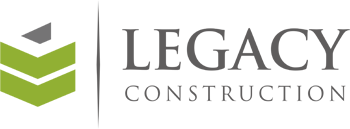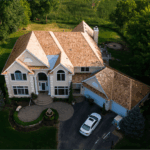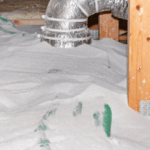When it comes to roofing options for commercial properties, sloped roofing often makes the list of considerations. While you might associate sloped roofs with charming homes, they are making a significant mark in the commercial sector as well. In this guide to commercial sloped roofing, we’ll explore why this option is gaining popularity, its benefits and drawbacks, and how it stands up to the traditional flat roof. Whether you’re new to the world of roofing or an experienced builder, there’s something here for you.
Understanding Sloped Roofs for Commercial Properties
Sloped roofs are not just for quaint cottages or suburban homes—they’re a versatile option for commercial buildings too. But what exactly is a sloped roof? Unlike flat roofs, which are almost level, sloped roofs have an angle or pitch that allows for water runoff. This can be particularly beneficial in areas with heavy rainfall or snowfall, as it minimizes the risk of pooling and leaks.
The design of sloped roofs can range from simple gable structures to more complex multi-faceted styles. Each design offers different aesthetic and functional benefits, catering to a variety of architectural tastes and practical needs. In commercial settings, choosing a sloped roof can significantly impact the building’s performance and longevity, making it an important decision for property owners and managers.
One of the key aspects of sloped roofing is its ability to integrate seamlessly with existing structures. Whether you’re retrofitting an older building or planning new construction, a sloped roof can often be adapted to meet specific requirements. This flexibility is a big draw for many businesses looking to optimize their spaces without compromising on functionality or durability.
Pros and Cons of Sloped Roofs
Every roofing option has its benefits and challenges, and commercial sloped roofing is no exception. On the plus side, the pitched design of these roofs offers excellent drainage capabilities. This is crucial for preventing water accumulation, which can lead to leaks and other structural issues over time. Additionally, sloped roofs can provide better ventilation and insulation, helping to keep energy costs down—a significant advantage for any commercial operation.
However, it’s not all sunshine and rainbows. The complexity of sloped roofing can translate into higher initial costs compared to flat roofing alternatives. Installation requires skilled labor, and the materials themselves can be more expensive. Maintenance can also be more challenging, especially if the design features steep pitches or multiple angles that are difficult to access.
Despite these potential drawbacks, many businesses find that the long-term savings on repairs and energy consumption make sloped roofs a worthwhile investment. It’s all about weighing the initial costs against the ongoing benefits to determine what works best for your specific situation.
Why Choose Sloped Over Flat Roofing?
This brings us to the classic debate of sloped versus flat roofing. Flat roofs have been a staple in commercial architecture for decades, known for their modern look and efficient use of space. However, they do come with some limitations, particularly when it comes to drainage and potential water damage. This is where pitched commercial roofing has a chance to shine.
Sloped roofs offer superior water management, reducing the risk of leaks and prolonging the lifespan of the roof itself. They also tend to require less frequent maintenance, saving both time and money for business owners. Furthermore, sloped roofs can add an extra layer of thermal insulation, contributing to energy efficiency.
On the aesthetic front, sloped roofs can enhance a building’s curb appeal, providing a distinctive look that sets it apart from the typical flat-roofed structure. This can be particularly advantageous for businesses looking to make a strong visual impression. For those weighing their options between sloped and flat roofing, these factors can play a significant role in the decision-making process.
In summary, commercial sloped roofing offers a range of benefits that make it an attractive option for many business owners. From improved drainage and energy efficiency to enhanced visual appeal, there’s plenty to consider when evaluating this type of roofing. While the initial investment may be higher, the long-term savings and durability often make it a savvy choice for those looking to invest wisely in their property’s future.
For professional guidance and top-tier service, consider reaching out to Legacy Construction. Our team is ready to help you explore the best roofing solutions for your commercial needs.
 (952) 303-4080
(952) 303-4080








